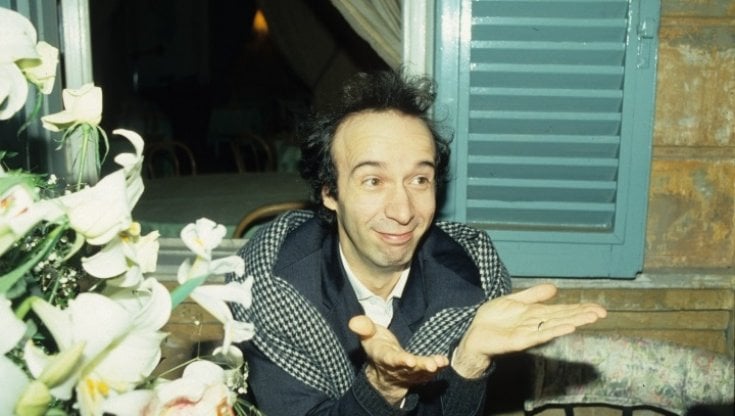Roberto Benigni is a name that resonates deeply in the world of cinema. Renowned for his comedic genius and his ability to convey profound human emotions, Benigni’s career spans over five decades. During which he has transformed from a beloved Italian comedian to an internationally acclaimed actor and filmmaker. His work is characterized by a unique blend of humor, warmth, and a touch of the absurd, making him one of Italy’s most iconic artists. Among his varied filmography, his roles in “Il minestrone” and “Ti voglio bene Berlinguer” hold a special place as they exemplify his early style and versatility.
Early Career and Rise to Stardom
Born on October 27, 1952, in Manciano La Misericordia, a small village in Tuscany, Roberto Benigni began his career in the 1970s as a stand-up comedian and television personality. His distinctive sense of humor, rooted in slapstick and political satire, quickly made him a household name in Italy. Benigni’s success on stage and screen led to collaborations with some of the most influential Italian directors of his time.
Roberto Benigni in “Il minestrone” (1981)
One of Benigni’s standout performances came in 1981 with the film Il minestrone, directed by Sergio Citti. In this absurdist comedy, Benigni plays the role of Maestro, a wandering, hapless character trying to survive in a world that seems to have lost its way. The film itself is a satirical take on society, portrayed through the misadventures of three drifters, including Maestro, who are on a relentless and often surreal search for food.
Benigni’s portrayal of Maestro is a testament to his ability to blend humor with social commentary. He brings a whimsical yet poignant energy to the role, using his expressive face and physical comedy to great effect. Maestro’s journey through the film is marked by encounters with strange characters and absurd situations, highlighting Benigni’s knack for embodying the everyman struggling against the absurdities of modern life. His performance in Il minestrone is both hilarious and touching, demonstrating his early flair for turning even the simplest scenarios into something deeply human and relatable.
Roberto Benigni in “Ti voglio bene Berlinguer” (1977)
In 1977, Benigni starred in Ti voglio bene Berlinguer, directed by Giuseppe Bertolucci. In this film, Benigni plays the role of Mario Cioni, a character that became a significant part of his comedic persona. The film is a unique mix of political satire and personal narrative, reflecting the socio-political landscape of Italy in the late 1970s. It revolves around Mario’s devotion to Enrico Berlinguer, the then-leader of the Italian Communist Party, blending humor with a sense of political disillusionment.
Benigni’s Mario Cioni is both a humorous and tragic figure, embodying the everyday man’s aspirations, frustrations, and naive idealism. His performance in Ti voglio bene Berlinguer is characterized by his signature blend of exaggerated gestures, rapid-fire dialogue, and a touch of melancholic reflection. Benigni masterfully balances comedy with a deep emotional undercurrent, portraying Mario as a figure whose political passion is both genuine and misguided. This role was instrumental in establishing Benigni’s style of infusing his characters with both satire and sentimentality. Making him not just a comedian but a profound social commentator.
Legacy and Influence
Roberto Benigni’s career has left an indelible mark on the world of cinema. His unique style, characterized by his exuberant physical comedy and his ability to tackle serious themes with a light touch, has influenced generations of comedians and filmmakers. His roles in Il minestrone and Ti voglio bene Berlinguer remain significant as they capture the essence of his early comedic genius. Which would later evolve into more nuanced and globally resonant performances.
Through his work, Benigni has shown that comedy is not just about making people laugh; it’s about reflecting on life’s complexities. Embracing its contradictions, and finding joy even in the darkest moments. His contribution to cinema goes beyond his individual films. He can connect with audiences on an emotional level, reminding them of the beauty and absurdity of the human experience.
Watch his movies on Movieitaly+
Read more articles here!






